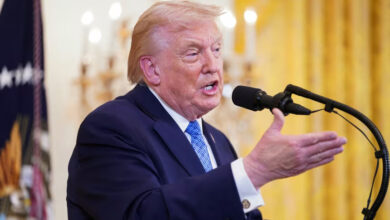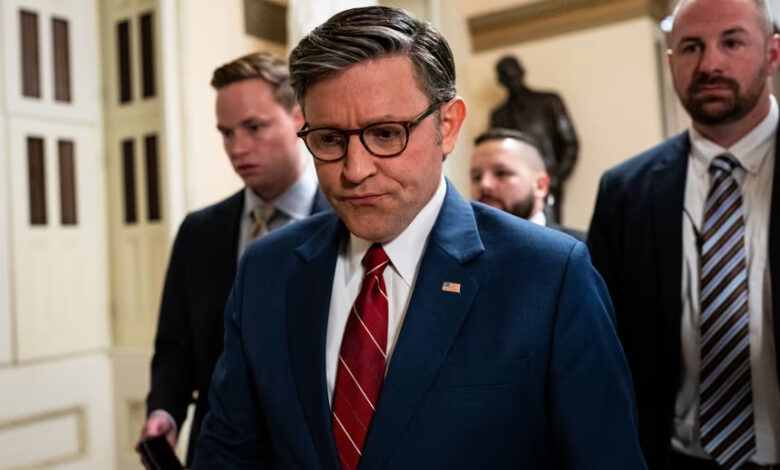
This coming week is expected to deliver the moment that House Speaker Mike Johnson has been forestalling in one form or another for nearly four months: when the House votes on whether to release the Jeffrey Epstein files.
It was way back in late July that Johnson sent the House off on a five-week recess a day early to quell a growing Republican revolt. He later kept the House out of session for an extraordinarily long time during the shutdown. This carried the benefit – whether it was the express purpose or not – of giving him an excuse not to swear in the decisive 218th member to force the vote.
President Donald Trump, too, clearly did not want this vote. He waged an unsuccessful 11th-hour campaign on Wednesday to flip the handful of Republicans who signed the “discharge petition.”
But the vote now looms, with Johnson announcing plans to schedule it for next week. So, what happens next? What could the vote mean? And what are the political dynamics?
It’s hardly the end of the road, but it’s clearly a significant moment that could set the Epstein saga off on a new trajectory.
The first thing to note is that, despite the pushback, this vote isn’t really the destination. It’s not like the House passes the bill, and suddenly the Justice Department releases the full Epstein case files. The bill would still need to be passed by the Senate and signed by the president.
But there’s clearly a reason Johnson and the administration didn’t want the vote. The fear here seems to be that it 1) creates a very difficult decision for many Republican congressmembers, and it 2) could apply pressure on the Senate and the administration to follow suit – particularly if it passes by a large margin in the House.
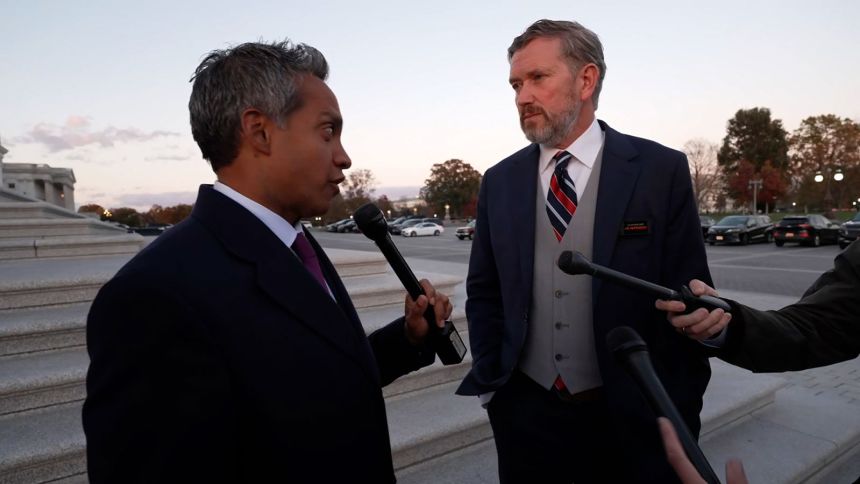
And the large margin appears to be what many are anticipating. CNN reported this week that House GOP leadership is expecting mass defections. The lead GOP co-sponsor of the discharge petition, Rep. Thomas Massie of Kentucky, isn’t exactly lowering expectations, either. He has set a threshold for success at two-thirds of the House, or nearly 290 votes, if all members are present.That’s the point at which enough members support the measure that it could overcome a presidential veto.
“If we are somehow able to get two-thirds vote here in the House, [that] puts a lot of pressure on the Senate, and also, if the Senate does pass it, that’s a very serious step for the president,” Massie told CNN.
That would indeed be a very symbolic victory. It would not only demonstrate that a wide, bipartisan majority of the House wants the files released, but it would suggest the chamber could actually override Trump’s attempt to block that – whether or not it would ever come to that.
It would require about 75 out of the 219 House Republicans, if every Democrat voted in favor.
Several Republicans have already said they will vote for the bill, despite not having supported Massie’s discharge petition. (Only four Republicans signed the petition.)
And we’re also seeing how this all could start to register in the Senate, with Sen. John Kennedy of Louisiana quickly signaling Thursday that the GOP should just go for full transparency. Kennedy had previously voted against an early effort by Senate Democrats to force the release of the files.
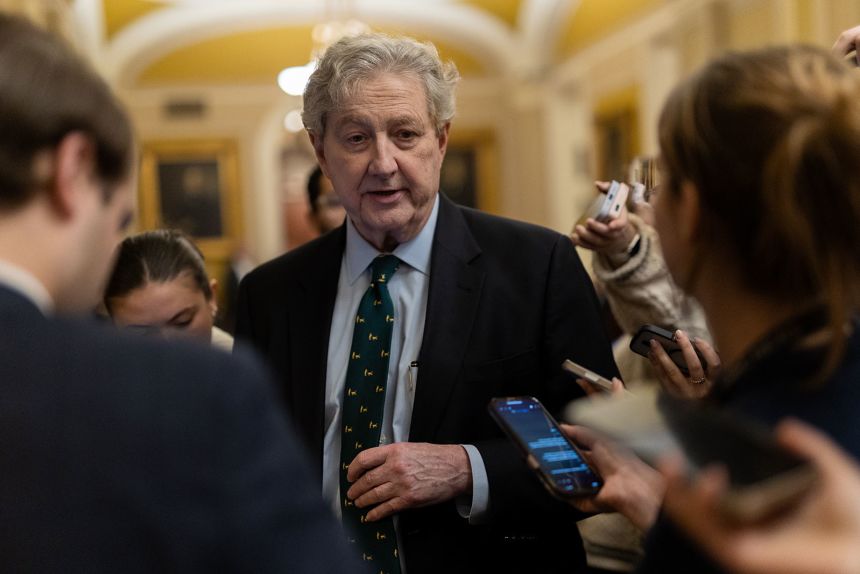
“I just don’t think this issue is going to go away until that issue is addressed and answered to the American people’s satisfaction,” Kennedy told CNN’s Kasie Hunt. “And I may end up with a sombrero on my head for saying that, but that’s the way I see it.”
These House members clearly face a difficult vote, with compelling dynamics pushing them in both directions.
Among the dynamics pushing them to vote no are loyalty to Trump, which is the coin of the realm in today’s GOP. Trump has made it very clear that he will remember how these members vote.
“Only a very bad, or stupid, Republican would fall into that trap,” Trump posted Wednesday on social media. He added that there “should be no deflections to Epstein or anything else.”
Voting for the bill would be a significant rebuke of Trump and Johnson, who explicitly fought against this. It would suggest that the other measures taken – such as the House Oversight Committee’s release of some Epstein materials obtained from his estate – just weren’t good enough. Congressional Republicans almost never buck Trump like this.
GOP leadership also has reason to try and limit defections, because of the level of pressure it could apply to the Senate.
But on the other side are plenty of dynamics pressuring members to vote for the bill.
The big one is how they would explain the vote to their constituents. The fact is that Americans overwhelmingly want all the files, they’re upset with the lack of transparency thus far, and they expect that the files contain significant information.
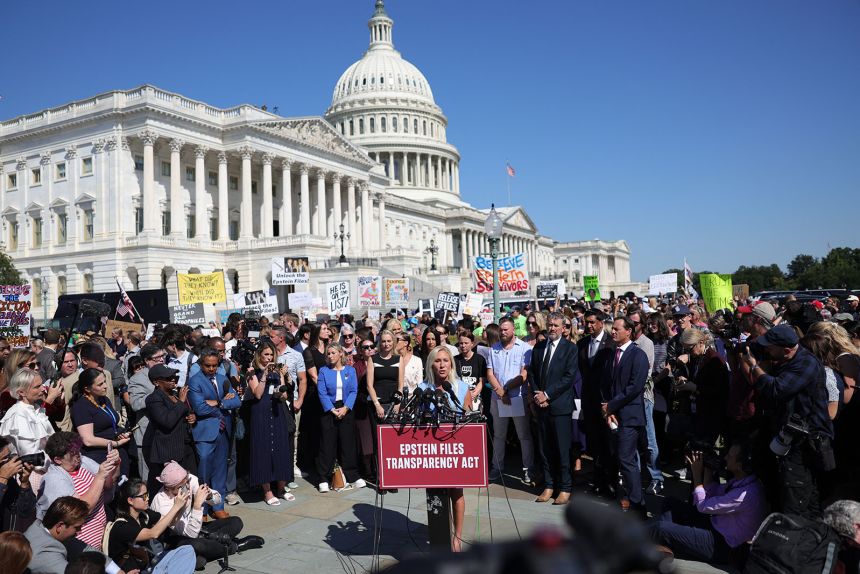
Fully 77% of Americans wanted all the files released, as long as victims’ names are redacted, according to an NPR-PBS-Marist College poll in September. An earlier CBS News-YouGov poll showed 89% said the government should release all its information.
Other polling has shown overwhelming majorities of Americans think damaging information about powerful people is contained in the files and that the government hasn’t been transparent enough.
Given all of that, voting against releasing the records risks making you look like you’re part of a cover-up – a cover-up for pedophilia. And what if the stuff is actually going to come out anyway, and maybe even includes some significant information? Who wants to be one of the people who voted against that transparency?
And that gets at another key dynamic here. At some point, Republicans who once upon a time led the charge to release the Epstein files – at least until the Trump administration reversed itself this summer – might just reason this is going to happen the easy way or the hard way.
CNN’s Annie Grayer and Kristen Holmes reported Friday on a Trump ally on Capitol Hill who told the president directly that they questioned the strategy to keep delaying and downplaying things.
Indeed, Trump, who hasn’t been accused of any wrongdoing in connection with Epstein, in many ways seems to be seeding suspicion about what the files might show about his own proximity to the convicted sex offender by fighting the transparency that his administration once promised. (Trump on Friday did push for more investigation into Epstein’s ties to high-profile figures — but that probe could be a further obstacle to a possible release of the DOJ’s files.)
At some point, lawmakers might resent that the administration has so mishandled all of this, and view this vote as a chance to force the issue and hopefully get beyond all of it, after months of it looming over their heads.
Whatever the case, it’ll be one of the more fascinating votes in a long time.

